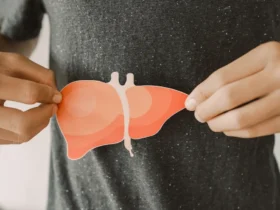The secret to having a productive and fulfilling day lies in starting it right.
A well-structured morning routine not only sets the tone for the day but also allows you to prioritize caring for your brain and body.
Renowned neuroscientist Andrew Huberman has shared his morning routine on his popular podcast, which promotes applying neuroscience principles to improve everyday life quality.
Here are ten simple steps inspired by Huberman’s morning routine to help you make the most of your mornings:
1. Rise with the Sun
Waking up early, ideally around 5:00 or 6:00 AM, boosts energy levels and focus throughout the day.
Early mornings are helpful for the synchronization of our body’s circadian rhythms, leading to better sleep quality at night.
Make an effort to rise with the sun and embrace the benefits that come along.
2. Embrace Natural Light Exposure
Exposure to natural light is crucial within the first hour of waking up. It helps regulate your internal clock and supports healthy hormone production.
Either step outside and enjoy the sunlight or, if it’s still dark outside, use a lightbox to simulate natural light exposure in your home.
3. Start Your Day with Gratitude
Before leaving your bed, take a moment to practice gratitude.
Reflect on the things that make your life great and express your appreciation for them.
This simple practice can significantly impact your overall mood and outlook on life.
4. Give Meditation its Moment
An essential component of Huberman’s morning routine is meditation.
Regular meditation helps improve concentration, reduce stress, and cultivate inner peace.
Allow a few minutes each morning to sit in silence, practice mindful breathing, and set a positive intention for the day.
5. Stretch Your Body
Spend a few minutes stretching your muscles after waking up, as this simple activity aids in improving flexibility, stimulating blood flow, and promoting overall body awareness. Pay attention to areas that feel tight or tense, practicing gentle movements that encourage muscle relaxation.
6. Connect with Nature
If possible, spend some time outdoors during your morning routine. Connecting with nature has numerous benefits for mental well-being, such as reducing stress and promoting relaxation.
Choose activities like walking, running, or even gardening as a way to start your day connected to the earth.
7. Engage in Physical Activity
A quick workout or physical activity within the first hour of waking up can help jumpstart your metabolism, increase energy levels, and clear your mind.
Huberman suggests engaging in low to moderate intensity exercises, such as yoga, swimming, or cycling.
8. Hydrate and Nourish
Hydration is fundamental for optimal brain function and overall health. Start your day by drinking water before consuming beverages like coffee or tea.
Additionally, include a nutritious breakfast filled with protein, healthy fats, and carbohydrates to provide lasting energy throughout the day.
- Eggs and avocado toast
- Oatmeal with nuts and berries
- Yogurt with granola and fruit
9. Develop a Mindfulness Practice
Utilize the tranquil morning hours to engage in a mindfulness practice. Journaling, reading an inspiring book, or simply sitting in quiet reflection can help you to focus on your goals, achievements, and challenges while promoting mental clarity.
10. Establish a Consistent Routine
Maintaining consistency in your morning routine is key to reaping its benefits.
By creating habits that support your physical and mental well-being, these actions will start to feel like second nature, allowing you to optimize your mornings with ease.
Customize this 10-step morning routine as needed to fit your personal preferences and schedule.
Investing time and energy into your mind and body each morning will ultimately lead to a happier, more productive, and fulfilling life.







